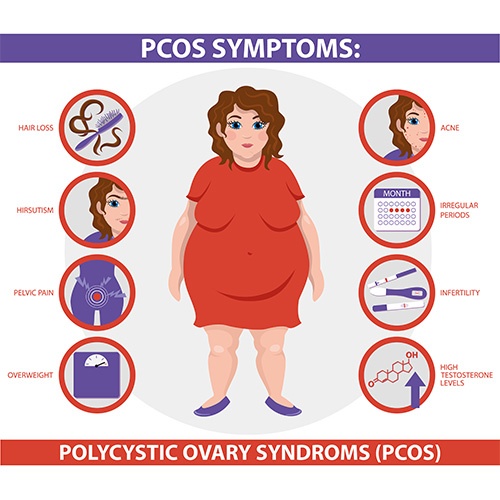Table of Contents
Does Keto Help with PCOS Symptoms? Here’s What You Need to Know!
If you’re wondering whether the keto diet can help manage the symptoms of PCOS, you’re not alone. Many women are exploring low-carb diets to see if they can ease issues like insulin resistance and hormone imbalances tied to this condition. Research and personal experiences suggest that adopting a ketogenic lifestyle may provide relief from some of the frustrating symptoms of PCOS.

While the keto diet focuses on reducing carbs and increasing fats, it also emphasizes whole foods, which may help you achieve better health overall. By promoting weight loss and balanced hormones, this diet might support your journey in managing PCOS symptoms effectively. Understanding how keto aligns with your health needs is key to making informed choices.
Key Takeaways
- The keto diet may help manage symptoms of PCOS.
- Weight loss and hormone balance are important for women with PCOS.
- A low-carb approach focuses on whole foods for better health.
Understanding PCOS and Its Impact on Women’s Health
Polycystic Ovary Syndrome (PCOS) affects many women and can create various health problems. Understanding how this condition works is crucial for managing symptoms and improving your well-being.
The Role of Insulin Resistance and Hormonal Imbalances
Insulin resistance plays a big part in PCOS. When your body doesn’t respond well to insulin, it can lead to higher insulin levels. This can mess with your hormones, leading to imbalances. Elevated insulin can increase testosterone, causing symptoms like excess hair growth and irregular periods.
Hormonal imbalances can also affect other areas of your health. For instance, they can disrupt your menstrual cycle, making it hard to conceive. Maintaining a healthy weight can improve insulin sensitivity, helping reduce these symptoms. Without managing these imbalances, you might face long-term risks like diabetes or heart disease.
Common Symptoms and Long-Term Health Risks
PCOS can show up in different ways, and its symptoms can vary. Some common symptoms include:
- Irregular periods
- Weight gain or difficulty losing weight
- Acne or oily skin
- Hair loss or thinning hair
- Excess body hair
If left untreated, PCOS can lead to serious long-term health issues, such as infertility, type 2 diabetes, and heart disease. Women with PCOS are at a greater risk of becoming obese, which can worsen symptoms and health risks. Recognizing these symptoms early can help you seek treatment and minimize potential complications.
The Keto Diet Explained
The ketogenic diet focuses on reducing carbohydrates while increasing healthy fats. This shift in your diet can help your body enter a state called ketosis. In ketosis, your body becomes efficient at burning fat for energy. Let’s dive into the key elements of this diet.
Nutritional Principles of a Ketogenic Lifestyle
In a ketogenic lifestyle, you’ll typically eat about 70-75% of your daily calories from fat, 20-25% from protein, and only 5-10% from carbohydrates. This low carb intake forces your body to adapt and start using fat as its primary energy source instead of glucose.
Emphasizing healthy fats is crucial. Foods like avocados, nuts, and olive oil are excellent choices. You want to avoid processed foods, which can contain unhealthy trans fats and high levels of sugar.
Since you’re cutting back on carbs, be aware of potential nutrient deficiencies. Make sure to include plenty of low-carb vegetables like leafy greens. They provide necessary vitamins and minerals without adding too many carbs.
Ketosis and Its Effects on Metabolism
When you limit carbs, your body enters ketosis. This is a metabolic state where your liver breaks down fat into ketones. Your brain and body start using these ketones as fuel instead of carbohydrates.
This shift can lead to more stable energy levels throughout the day. You may notice that your cravings for sugary and processed foods decrease as your body adjusts to burning fat.
However, during the transition, some may experience the “keto flu.” This can include symptoms like fatigue and irritability as your body adapts. It’s important to stay hydrated and maintain electrolyte balance during this phase.
The goal of ketosis is not just to lose weight but to also improve how your body uses energy. This can be especially beneficial for those dealing with conditions like PCOS, as it may help with fat storage and hormone regulation.
The Connection Between Keto and PCOS Symptom Management

Eating a ketogenic diet can impact how you manage symptoms of PCOS. It focuses on weight loss and stability in hormone levels, which are often problematic for those with this condition. Let’s explore how keto can help with these specific areas.
Weight Loss and Insulin Sensitivity
When you stick to a keto diet, it often leads to weight loss. Reducing weight can be a game changer, as excess weight can worsen PCOS symptoms.
Lower body weight often improves insulin sensitivity. This means your body uses insulin better, which can lower insulin levels. High insulin can lead to stronger symptoms like acne and irregular menstrual cycles.
Keto may also help reduce cravings, which means you’re less likely to reach for sugar-laden snacks. Managing your blood sugar levels is crucial, as it brings balance to your overall health.
Hormonal Regulation and Reproductive Health
Keto can have positive effects on hormone levels. By promoting weight loss and improving insulin sensitivity, it helps balance testosterone and estrogen. This balance is important because high testosterone can interfere with ovulation.
Improved hormone levels can also lead to better menstrual regularity. If you struggle with irregular cycles, a balanced diet like keto may promote a more predictable cycle. In turn, this can enhance your fertility options.
In addition, stabilizing blood glucose levels can support your overall reproductive health. Focusing on healthy fats and proteins instead of carbs helps keep your hormones in check.
By managing these aspects, you may find relief from troublesome symptoms.
Comparative Analysis of Keto with Other Dietary Interventions for PCOS
When considering how different diets impact PCOS, it’s essential to explore the effectiveness of keto compared to other options. Each dietary intervention can offer unique benefits and challenges that you should know.
Success Rates and Fertility Outcomes
Keto diets focus on high fat and low carbohydrates. This can help reduce insulin levels, which is crucial for managing PCOS. Studies show that low-carbohydrate diets like keto may improve fertility outcomes by promoting weight loss and hormonal balance.
Weight Loss
Rapid weight loss on keto can lead to improvements in your menstrual cycle and ovulation. Many women report better fertility after adhering to this diet.
Unlike some standard diets that offer slower results, keto may provide quicker success. However, this varies by individual.
Remember to consider your cholesterol levels and blood pressure when switching to a keto diet. You want to ensure that your overall health benefits from these changes.
Managing Risks and Potential Downsides
While keto can yield positive results, it’s not without its challenges. Some individuals experience the notorious “keto flu,” which includes fatigue and brain fog during dietary changes. This can be tough at first, but the symptoms typically subside.
How does Keto help with PCOS symptoms Nutrient Deficiencies?
Keto diets can sometimes lack vital nutrients, including certain vitamins and minerals. It’s important to supplement your diet with foods rich in Vitamin D, as well as consider electrolyte balance.
Continuous monitoring of your health is essential. Keeping an eye on cholesterol levels and blood pressure is important, as high-fat diets can impact these if not managed well. Always consult with a healthcare provider before making significant dietary changes, especially if you have PCOS.
Each diet has its pros and cons, so understanding these will guide you in making the best choice for your health and lifestyle.
Lifestyle Considerations and Supportive Practices for PCOS
Making certain lifestyle changes can play a significant role in managing PCOS symptoms. Focusing on exercise, stress management, and potential medications can lead to improved overall health and well-being.
Exercise, Stress Management, and Heart Health
Regular exercise is crucial for managing PCOS. It can help reduce weight, improve insulin sensitivity, and boost your mood. Aim for at least 150 minutes of moderate exercise each week. This could be brisk walking, cycling, or swimming. Pairing this with strength training two to three times a week is beneficial too.
Managing stress is equally important. High stress levels can worsen PCOS symptoms and lead to other health issues like hypertension. Practicing mindfulness, yoga, or deep-breathing exercises can help lower stress. Keeping your heart health in check is also key, as women with PCOS have a higher risk of heart disease. Regular check-ups with your doctor can ensure all aspects of your health are on track.
Medications and Supplementations
Sometimes, medications are necessary to help manage PCOS symptoms. Your doctor might prescribe medications to regulate menstrual cycles or improve insulin sensitivity. Metformin is one such medication commonly used.
In addition to medications, certain supplements may support your health. For instance, inositol can help with insulin resistance and improve ovulatory function. Omega-3 fatty acids are also recommended for their anti-inflammatory properties, which can help with gut health and hormonal balance. Always consult your healthcare provider before starting new medications or supplements to find the right plan for you.
Frequently Asked Questions
You might have some questions about how the keto diet fits into managing PCOS. Let’s break down some common queries regarding weight loss, fertility, and hormonal balance when following this diet.
How does keto help with PCOS symptoms and weight loss?
The keto diet can help you lose weight by reducing insulin levels and decreasing hunger. For many with PCOS, weight loss can be hard due to insulin resistance. This diet focuses on low carbs and higher fats, which may lead to better weight management over time.
Can a keto diet worsen PCOS symptoms, or is it generally safe?
For most people, the keto diet is safe when followed correctly. However, some may initially experience side effects like fatigue or headaches as their body adjusts. It’s essential to listen to your body and consult a healthcare professional if you notice any worsening symptoms.
What kind of improvements can someone with PCOS expect after following a keto diet?
You might see several improvements, including better weight management, reduced cravings, and potentially fewer acne breakouts. Some report more regular menstrual cycles and less bloating. These changes can lead to an overall feeling of better health.
Is there a link between keto and changes in fertility for those with PCOS?
There is some evidence suggesting that the keto diet could positively impact fertility for individuals with PCOS. By improving insulin levels and promoting weight loss, it may help restore regular ovulation in some cases. Each person’s experience can vary, so it’s good to monitor closely.
How does keto compare to a low carb diet specifically for PCOS management?
The keto diet is more restrictive than a standard low carb diet due to its high fat content. Both diets can help with insulin sensitivity, but keto may lead to quicker results in weight loss. Talk to your healthcare provider to determine which option may work best for you.
Could following a keto diet help with hormonal imbalances associated with PCOS?
Yes, the keto diet may help balance hormones by lowering insulin levels. It can also reduce inflammation, which benefits overall hormonal health. Many with PCOS find that addressing these imbalances leads to fewer symptoms and improved well-being over time.

